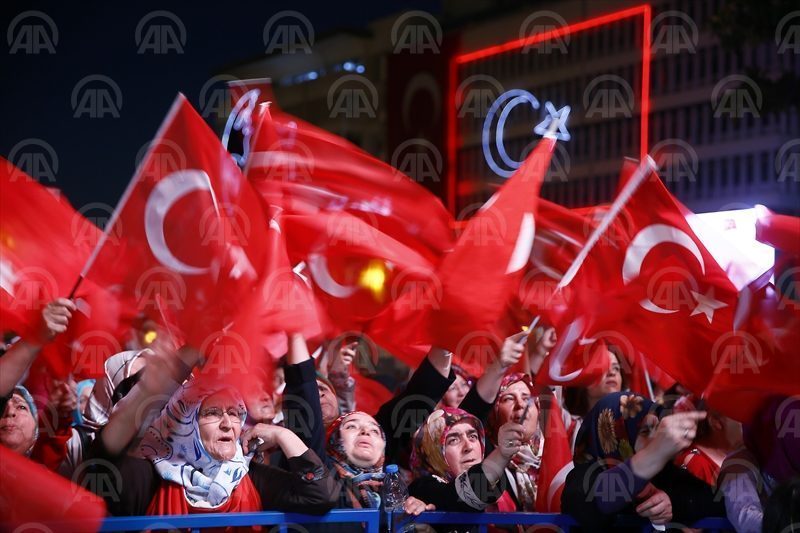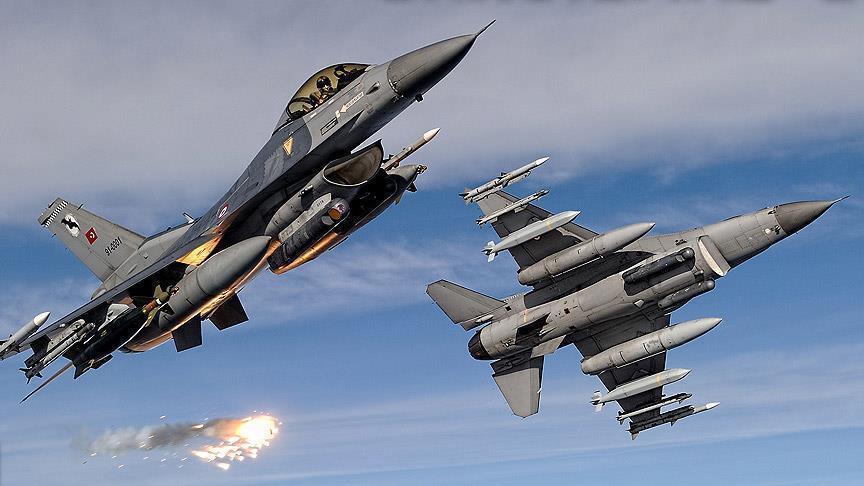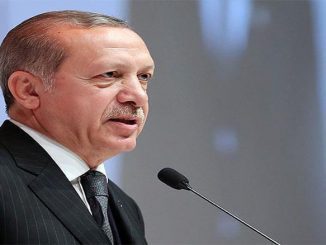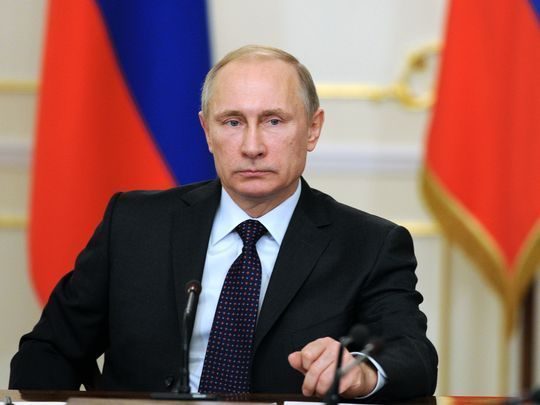
The coup plotters stormed the headquarters of public broadcaster TRT and had a coup memorandum read out on behalf of the ‘Peace at Home Council’ , in reference to Atatürk’s famous slogan ‘Peace at Home, Peace Abroad’.
Al Sharq Forum has published a study about the failed coup attempt in Turkey by Ömer Aslan*, that was entitled, “The July 15th Failed Coup Attempt in Turkey: Causes, Consequences, and Implications in Comparative Perspective”. Following is a summary of the study in points:
- Introduction: On July 15th 2016, a group of soldiers within the Turkish military—ordinarily an expert executioner of military coups d’état—carried out the seventh coup attempt in Turkey’s checkered history. This was also the 3rd time a military coup attempt had failed in Turkey. On the night of July 15th, fighter jets and helicopters flew low over Istanbul and Ankara, while coup plotters on the ground closed down both Bosphorus bridges and tried to occupy key corners of Istanbul and Ankara. Tanks rolled through the streets and shut down major avenues. Jets and helicopters attacked the Turkish National Assembly, the Presidential Complex, the Turkish Intelligence Headquarters, the Police Headquarters, and the Police Special Forces Command in the capital. The coup plotters stormed the headquarters of public broadcaster TRT and had a coup memorandum read out on behalf of the ‘Peace at Home Council’, in reference to Atatürk’s famous slogan ‘Peace at Home, Peace Abroad’. Post-coup investigations have revealed more and more details that confirm the initial allegation that the defeated coup attempt was masterminded by officers loyal to the Gülen movement, a shady group designated as a terrorist organization in 2014 by Turkey, which not only has huge representation within the Turkish state structure but also has strong international networks.
- A Close-Up Photo of the Night of the July 15th: It is becoming increasingly clear that the July 15th coup attempt was not an “amateur affair” as some hurriedly portrayed it. Despite initial confusion and underestimation by external experts and analysts of the coup plan8 , the Gülenist prospective junta did plan to capture President Erdoğan. The coup plotters planned to start the coup at 03:00 am on a Friday night-Saturday morning and attack critical units of infrastructure as well as the security and communications networks to neutralize potential sources of resistance. However, once Turkish intelligence somehow picked up on the coup (either information was leaked from inside the junta, or intelligence managed to infiltrated it), they were forced bring the time of the coup forward to 9 pm, which significantly disrupted their plans. Ordinary people began to understand that something was not right when fighter jets began flying extremely low over the skies in Istanbul and Ankara, frightening people and damaging some buildings. At the same time, soldiers closed down both bridges in Istanbul, allowing people to leave the city but not enter it. As these initial moves were taking place, first PM Yıldırım appeared on a private TV channel to inform the public that there had been a coup attempt by junior officers in the military. The coup plotters in the meantime had planned to take control of the city by occupying AKOM (the Disaster Coordination Center) and the Istanbul Governorship. As expected, tanks rolled through the streets to shut down Istanbul Atatürk Airport, Turkey’s largest, while other soldiers raided the TRT (public broadcasting company) building to have a newsreader broadcast the coup memorandum and spread the news. Around the same time, President Erdoğan appeared on private channels as well, confirming PM Yıldırım’s statement and calling people to the streets to resist the tanks and soldiers. As different forces swiftly foiled the coup attemp, the coup plotters attacked MİT headquarters, Turkish Security Directorate, Headquarters of Police Special Operations Forces, Turkish National Assembly, and later the Presidential Complex with helicopters and fighter jets. Politicians from all over the spectrum denounced the coup attempt more or less immediately, while the rest of the army spoke and acted against it. If one traced the process from the start of the coup attempt to its failure, the coup attempt by the Gülenist network was countered by a quickly-formed loose network of intelligence, politicians, ordinary people, the police, the judiciary, anti-coup TV channels, and anti-coup officers.
- Intelligence as the Key Factor: The coup plotters seem to have believed that the coup would be complete by early morning through a classical coup-style quick and forceful intervention. This was why the prospective Gülenist junta called their coup operation ‘Operation Thunderbolt’. They failed to coordinate it properly among themselves because an intelligence tip-off from MİT (Turkish Intelligence) derailed it. It would be naïve to assume that having chosen to continue the conspiracy even after being exposed, that they could not have predicted that their attempt would cost so much blood. The fact that they still went on and killed hundreds of resisting citizens indicates that they were ready to replicate the Egyptian mass-killing scene. In other words, they must have thought that “coup attempts generally transpire very quickly and, with a few noteworthy exceptions, are over before civilians can mobilize in opposition.” However, once the coup plot was exposed, those opposing the coup had the time, courage, and tools at their disposal to mobilize in opposition to the coup and resist it. Only coup plotters, acting outside the chain of command, could initiate such an ‘ardent’ coup under these new circumstances. What doomed this classical coup attempt was Turkish intelligence picking up on the conspiracy, which many early commentators failed to mention as the key factor. Though it is unclear how the various intelligence services (in the army, police, and MİT) remained unaware of the conspiracy until relatively late, their belated success disrupted the plot. In doing so, it allowed for the PM to name the ‘events’ a coup attempt, thus paving the way for the formation of an anti-coup bloc. From then on, the media, the people, President Erdoğan, the police, and anti-coup officers could all play their parts in repulsing the coup attempt.
- FETO Orchestrated the Coup Attempt: Post-coup investigations have revealed more and more details that confirm the initial allegation that the defeated coup attempt was masterminded by officers loyal to the Gülen movement, a shady group designated as a terrorist organization in 2014 by Turkey, which not only has huge representation within the Turkish state structure but also has strong international networks.
- Military reforms: Military reforms need to be redesigned and then brought back onto the government’s short and long-term agenda. The AK Party has addressed this issue largely through formalities such as removing Article 35 which the military had used to legitimize its interventions, from the Internal Service code of the Military. AK Party should rather address the essence of this issue through a long-term strategic restructuring and transformation plan for the army.
- The External Dimension: The July 15th coup plotters relied on the instability in the European Union in terms of its internal coherence, problems with economic and political power projection, and its ethical sway. More importantly, it is unlikely that Obama would take radical steps to initiate sanctions on Turkey in the case of a coup in his final five months in the White House. More importantly, it is unlikely that Obama would take radical steps to start sanctions on Turkey in the case of a coup in his final five months in the White House. The immediate words Secretary of State Kerry used in reaction to the news of the coup were instructive. He hoped that ‘stability and peace’ would not be hurt. After Kerry and President Obama spoke, and as several people started to say that the coup was failing, the message of support for the government came as late as 2:02 am, “The president and secretary agreed that all parties in Turkey should support the democratically-elected government of Turkey, show restraint, and avoid any violence or bloodshed.” This statement was too little too late. Coup d’état attempts are most fragile in their early moments. An ambivalent American message at a time when a democratically-elected government was still battling a vicious coup attempt almost felt like support for the coup plotters. What needed was a straight, blunt message that ‘a coup d’état is unacceptable,’ to damage the coup plotters’ morale. Given these thoughts, it is possible to say that although this coup would have certainly caused bloodshed even if it was carried out at 3 am as planned originally, it is highly doubtful whether the U.S. would have refused recognition. The substance and sheer number of comments, analyses, and immediate briefs by many ‘tank liberals’84 on the failed July 15th coup attempt in the West indicate clearly that if the coup had succeeded, it would have been immediately celebrated, at least in some influential quarters.
- Recommendations: The government must take the news that the Turkish Military Academy in Ankara and Air Force Academy as well as Kuleli Military High school in Istanbul were involved in the coup attempt. Addressing the post-coup environment in all these schools (not only in Ankara and Istanbul and not only the Military Academy) is key to rehabilitating the Turkish armed forces in the long term, especially if it is remembered that the interventionist mentality in the army about the politics spreads through military schools.
The government must also be careful and vigilant not to allow the military to revert to its old ways of closing the army’s doors to certain segments of society. The unacceptable extent of Gülenist infiltration into the military should not be used to justify blocking more conservative-minded citizens from entering military schools and other echelons of the army.
Though it looks certain that the coup attempt was initiated and carried out largely by Gulenist officers, it remains possible that it rode on the crest of a ‘neo-nationalist’ grievances within the officer corps.
* Ömer Aslan is an Associate Fellow at Al Sharq Forum and a researcher at the Institute for Security Sciences at the Turkish National Police Academy (TNPA).



